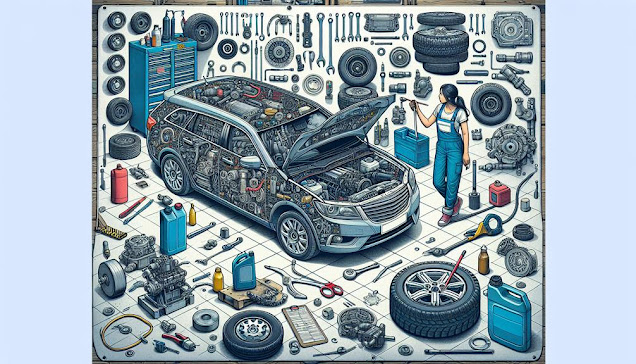Comparing Synthetic and Conventional Motor Oils: Which is Best for Your Car?
When it comes time for an oil change, vehicle owners are often faced with a choice between synthetic and conventional motor oils. Each type has its distinct advantages and suitability depending on the vehicle's requirements, driving conditions, and owner preferences. This guide aims to provide a clear comparison of synthetic versus conventional oil to help you decide which is the best fit for maintaining your vehicle's performance and longevity.
Advantages of Synthetic Oil
Synthetic oil is widely recognized for its superior performance and protective qualities, which can significantly extend the life of your engine.
Enhanced Engine Protection
Synthetic oil is engineered to provide a higher level of engine protection. It is made from chemically modified petroleum components, which means its molecules are uniform in size, reducing friction and wear in the engine. This uniformity also helps prevent the build-up of sludge and deposits within the engine, promoting cleaner operation.
Superior Temperature Resistance
One of the standout features of synthetic oil is its ability to perform in extreme temperatures. It remains fluid and effective in cold weather, making engine starts easier and less straining on the battery and starter motor. In hot climates or during high-performance driving, it resists thermal breakdown better than conventional oil, maintaining its viscosity and protective properties.
Longer Change Intervals
Due to its durable nature, synthetic oil can last longer than conventional oil, meaning fewer oil changes over the life of your vehicle. This can lead to cost savings and less environmental impact from used oil disposal, despite the higher initial cost of synthetic products.
Benefits of Conventional Oil
While synthetic oil may offer superior performance, conventional oil still has a significant role in vehicle maintenance, especially for certain types of vehicles and driving conditions.
Cost-Effectiveness
For many drivers, the lower cost of conventional oil makes it a practical choice, particularly if the vehicle is older or used primarily for short, routine trips where extreme performance is not required.
Compatibility with Older Vehicles
Vehicles manufactured before the 1990s were designed to use conventional oil, and many older cars can continue to operate effectively with this type of oil. In these cases, using conventional oil maintains the original lubrication specifications for which the engine was designed.
Adequate Protection for Normal Driving
For everyday vehicle use under typical driving conditions, conventional oil provides adequate protection. It keeps the engine lubricated and functioning well without the need for the advanced formulations found in synthetic oils.
Making the Right Choice
Choosing the right oil involves considering your vehicle’s age, the manufacturer’s recommendations, your typical driving conditions, and your personal maintenance preferences. Here’s how you can make an informed decision:
Consult Your Vehicle’s Manual: Always start by checking your car’s owner manual, which specifies the type of oil that is best suited for your engine based on its design and performance requirements.
Consider Your Driving Habits: Evaluate whether you drive in extreme conditions, such as very cold or hot climates, or if you often engage in performance driving. If so, synthetic oil might be the better option.
Assess Economic Factors: Determine whether the higher cost of synthetic oil is justifiable based on your driving needs and the potential benefits of longer oil change intervals and better engine protection.
By understanding the unique benefits of both synthetic and conventional motor oils, you can make a choice that ensures optimal engine performance, extends the life of your vehicle, and aligns with your personal and financial priorities.



Comments
Post a Comment